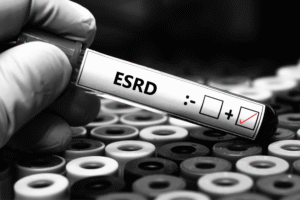When the One Big Beautiful Bill became law, headlines read: “No tax on Social Security!” Certainly, a big deal for many retirees — but it is also not accurate. The law doesn’t eliminate taxes on Social Security. Instead, it creates an age-based deduction for people 65 and older. This, in turn, lowers taxable income — which, in many cases, helps reduce or eliminate taxes for those aged 65 and older — whether they are receiving Social Security or not. But what about people who are under 65 and started receiving Social Security at 62? Unfortunately, they are left out.
Learn more below about the new Senior Bonus Deduction, who it affects, and who gets left out.
What is the new Senior Bonus Tax Deduction?
The new Senior Bonus Tax Deduction is part of the recently passed One Big Beautiful Bill Act (OBBBA). It is a new tax benefit aimed at helping reduce taxes for seniors aged 65 and older. Starting in 2025, the bonus allows eligible seniors an additional $6,000 deduction for individuals and $12,000 for married couples. This is in addition to other deductions you are eligible for, including standard or itemized deductions.
You can receive the full Senior Bonus Deduction if your Modified Adjusted Gross Income (MAGI) as a single filer is $75,000 or less ($150,000 for married). The amount of the deduction begins to phase out for higher incomes. Single filer incomes over $175,000 lose eligibility altogether ($250,000 for married). This new deduction is currently available from 2025 to 2028.
Why are they calling it “No Tax on Social Security,” and how will this mislead some on Social Security?
The OBBBA did not change the tax laws on Social Security. The current rules for taxing Social Security say that you will pay federal income taxes on your benefits if your modified adjusted gross income exceeds $25,000 for an individual or $32,000 a year for joint filers. This rule is unchanged. However, the new Senior Bonus Deduction gives an additional $6,000 (single) or $12,000 (joint) deduction. The deduction reduces taxable income and can push many seniors’ taxable income to zero. More people on Social Security will pay no or fewer taxes – but not all.
Don’t confuse the new Senior Bonus Deduction as an actual “No Tax on Social Security”. Only people 65 or older qualify for this deduction, and they do not need to be receiving their Social Security benefits to claim it. Also, some Social Security recipients are left out altogether. See more below.
Who does the new Senior Bonus Deduction leave out?
Receiving Social Security benefits is not a qualifying factor for the new deduction. The deduction is explicitly limited to taxpayers 65 and older. The rules are unchanged for people under 65. If you are under 65 and already receiving Social Security, youdo not qualify for this new deduction! Your Social Security taxes will be calculated using the normal method. However, if your income is below $25,000 as a single filer ($32,000 married) for 2025, then you won’t owe tax anyway. If it is over these amounts, then you will have tax to pay and you will not get to use the new Senior Bonus Deduction. Aside from age eligibility, those with higher incomes may not qualify for the deduction at all.
It is best to consult your tax professional to see if the new deduction will benefit you or not.
Senior Bonus Deduction Takeaways
- Age is the qualifying factor. The deduction is explicitly limited to taxpayers 65 and older. You just need to be 65 by the end of the tax year to qualify.
- Receiving Social Security Benefits is NOT a qualifying factor. People under 65 that are receiving Social Security do not qualify.
- You still get the deduction if you are NOT taking social security as long as you are 65 and older.
- Not permanent: The deduction is temporary (2025–2028), so your long-term retirement planning should consider the fact that the break may not be permanent.
- Maximum Senior Bonus Deduction amount per year is $6,000 single or $12,000 joint.
- Deduction phase out for MAGI income between $75,000 – $175,000 single ($150,000 -$250,000 joint)
- No Deduction for MAGI incomes over $175,000 single ($250,000 joint)
Need help with Medicare? Our agents are always here to help you navigate the process and review plan.






